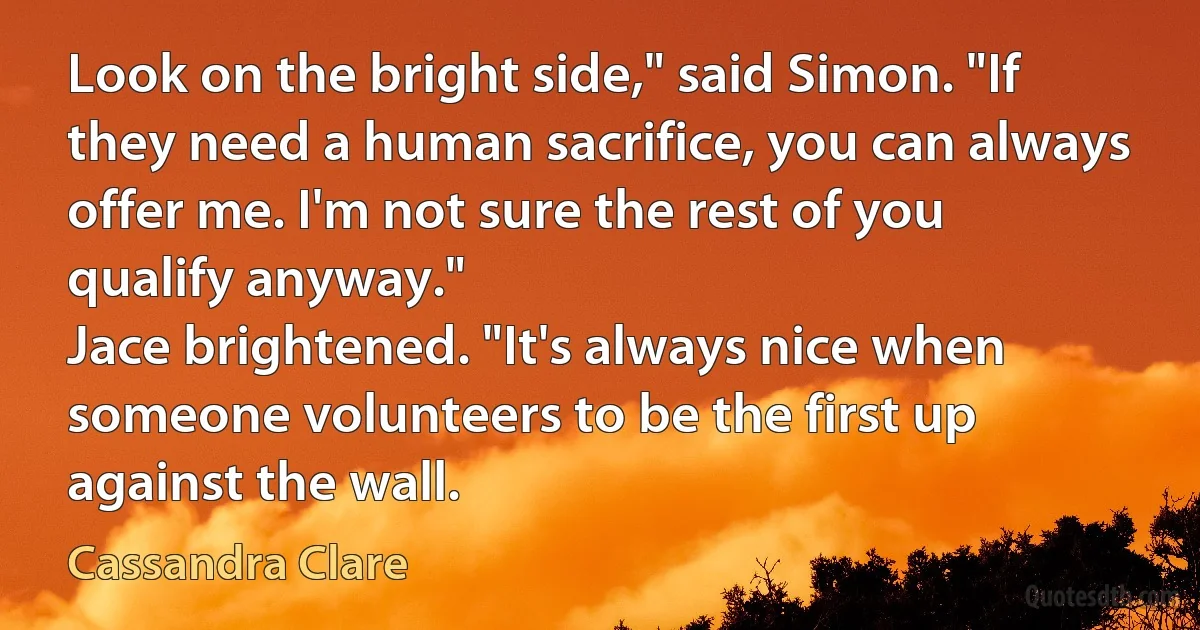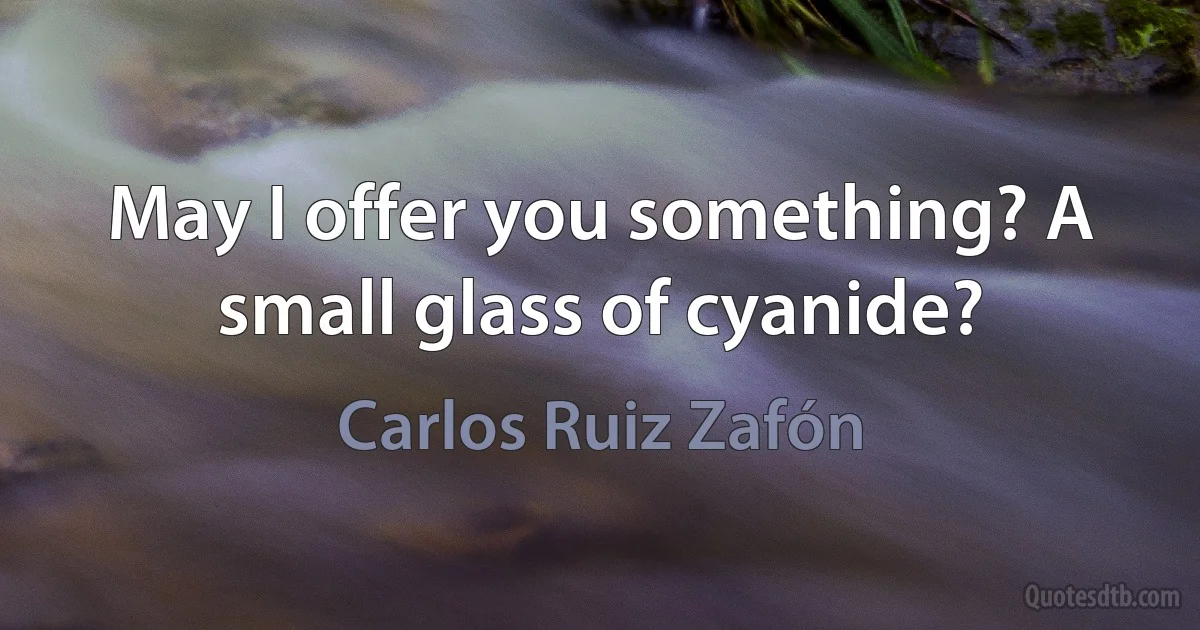Offer Quotes - page 43
Authoritarians offer citizens a deal: if we hand over our freedom, they will guarantee certainty and safety. This might have been possible in a closed society with little interaction between people, but it is a false promise in a knowledge economy where citizens are interconnected. If the best chaos theorists can't model the weather beyond a week, how does the National Security Agency think it can predict which of us will turn into a terrorist? If our intelligence agencies persist in monopolising knowledge we will see continued intelligence failures.

Heather Brooke
Free speech is not the great danger for humanity. Concentration of power is. We learn this lesson over and over again, and yet seem compelled eternally to repeat it. Communism, colonialism, monarchy, state socialism, tyranny- all become enemies of the people because they offer their citizens not too many opportunities to communicate or associate, but too few. Power is the dynamic force that fuels politics and it is this, not speech, which needs to be constantly monitored, controlled and checked. We view crimes against humanity as aberrations, individuals gone wild, when we should be seeing them through the prism of power. Abuse happens when a culture values some people more than others and those exercising power are not accountable for their actions.

Heather Brooke
I'm very much a free market capitalist, actually. I don't agree with a kind of totalitarian, one government or sort of universal law. I think what will happen and what is happening now is, in the same way as... In the way that countries make themselves attractive to investors through different pieces of legislation they offer, whether it's secrecy in the case of the Cayman Islands or Switzerland, I think the fact that some countries now are offering very robust publishing laws, it will be that as information is global, what you might see is that these big internet companies like Google or Facebook, that have their servers, will start to relocate those servers to countries where they have less interference. In a way, you're creating a kind of free market of freedom of information law.

Heather Brooke
Making my own the concerns of my venerable Predecessors, I consider it opportune to offer appropriate responses so that the entire Church, allowing herself to be regenerated by the power of the Holy Spirit, may present herself to the contemporary world with a missionary impulse in order to promote the new evangelization.

Pope Benedict XVI
We too must remain faithful to the 'yes' we have given to the Lord's offer of friendship. We know that he will never abandon us. We know that he will always sustain us through the gifts of the Spirit. Mary accepted the Lord's' proposal' in our name. So let us turn to her and ask her to guide us as we struggle to remain faithful to the life-giving relationship God has established with each one of us.

Pope Benedict XVI
If the Church were to start transforming herself into a directly political subject, ... she would do less, not more, for the poor and for justice, because she would lose her independence and her moral authority, identifying herself with a single political path and with debatable partisan positions. The Church is the advocate of justice and of the poor, precisely because she does not identify with politicians nor with partisan interests. Only by remaining independent can she teach the great criteria and inalienable values, guide consciences and offer a life choice that goes beyond the political sphere. To form consciences, to be the advocate of justice and truth, to educate in individual and political virtues: that is the fundamental vocation of the Church in this area. And lay Catholics must be aware of their responsibilities in public life; they must be present in the formation of the necessary consensus and in opposition to injustice.

Pope Benedict XVI
The approaching great epoch is closely connected with the ascendancy of woman. As in the best days of humanity, the future epoch will again offer woman her rightful place alongside her eternal fellow traveler and co-worker, man. You must remember that the grandeur of the Cosmos is built by the dual Origin. Is it possible, therefore, to belittle one Element of It?

Helena Roerich
It is not true that on an exchange of commodities we give value for value. On the contrary, each of the two contracting parties in every case, gives a less for a greater value. ... If we really exchanged equal values, neither party could make a profit. And yet, they both gain, or ought to gain. Why? The value of a thing consists solely in its relation to our wants. What is more to the one is less to the other, and vice versa. ... It is not to be assumed that we offer for sale articles required for our own consumption. ... We wish to part with a useless thing, in order to get one that we need; we want to give less for more. ... It was natural to think that, in an exchange, value was given for value, whenever each of the articles exchanged was of equal value with the same quantity of gold. ... But there is another point to be considered in our calculation. The question is, whether we both exchange something superfluous for something necessary.

Étienne Bonnot de Condillac
Repentance was never yet produced in any man's heart apart from the grace of God. As soon may you expect the leopard to regret the blood with which its fangs are moistened,-as soon might you expect the lion of the wood to abjure his cruel tyranny over the feeble beasts of the plain, as expect the sinner to make any confession, or offer any repentance that shall be accepted of God, unless grace shall first renew the heart.

Charles Spurgeon
I want to offer a little ode to the importance of studying history. We've seen the assertion of "alternative facts” – meaning, essentially, a denial of actual facts. We've see the proliferation of "fake news,” along with the suggestion that it's impossible to differentiate between "real” and "fake” news. Studying history responsibly does some handy things. It compels you to confront and consider ugly realities as part of a bigger picture. Studying history compels you to investigate, evaluate, compare, and analyze evidence to help you piece together ACTUAL facts. And in teaching people to evaluate evidence in search of facts, it trains them to logically analyze and interpret news for themselves. [F]or those insisting that the humanities has no value, we are getting daily examples of how the study of history offers practical tools for understanding not only the past, but the present.

Freeman, Joanne B.
Schnabel said that Beethoven's late piano sonatas are music better than could be played. Larkin's best poems are poetry better than can be said, but sayability they sumptuously offer. Larkin demands to be read aloud. His big, intricately formed stanzas, often bridging from one to the next, defeat the single breath but always invite it. As you read, the ideal human voice speaks in your head. It isn't his: as his gramophone records prove, he sounded like someone who expects to be interrupted. It isn't yours, either. It's ours.

Clive James



